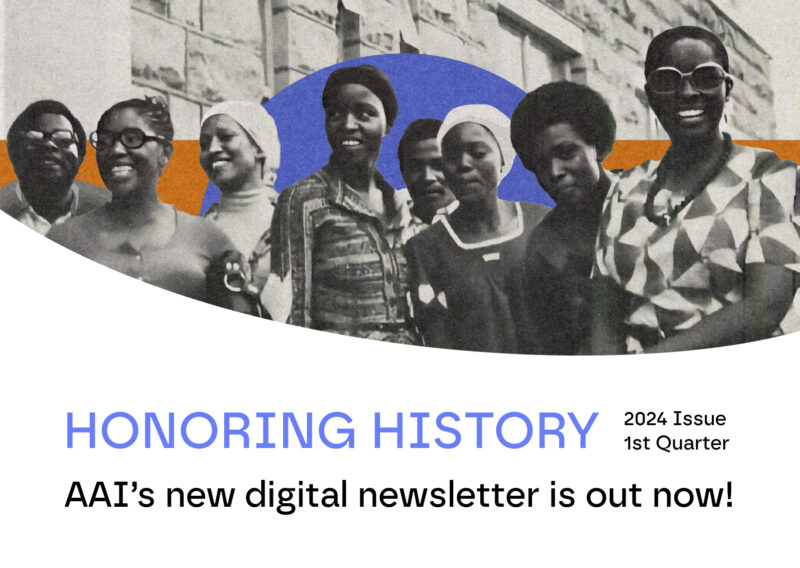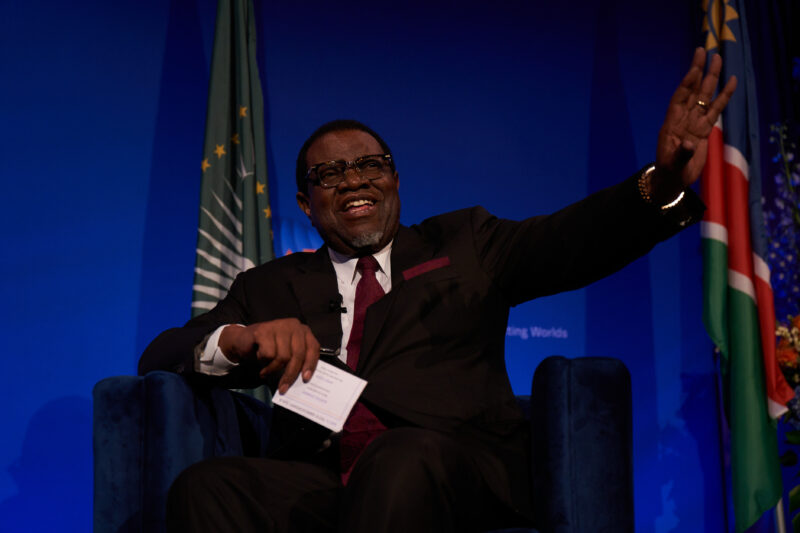From the Archives: Reflections from Tanzania’s Julius Nyerere on His Presidency
AAI features a quarterly “From the Archives” blog, highlighting historical milestones in AAI and African history. This blog post features verbatim historical documents from AAI’s files and articles from Africa Report, a monthly publication of in-depth analysis and reports chronicling the continent’s dramatic political and economic developments. Published from 1956 through 1995, Africa Report became the most significant Africa-focused publication in the U.S.
Africa Report, November-December 1985. Volume 30, Number 6
A month before handing over power to his successor in 1985, Julius Nyerere reflected on the disappointments and triumphs of his 24 years as president of Tanzania in a candid discussion with Africa Report.
Africa Report: What would you like to have remembered as the greatest achievement of your presidency and what was your biggest disappointment?
Nyerere: My greatest success is also my greatest disappointment. We have established a nation—Tanzania—that is some achievement. Stable, united, proud, with immense clarity of what it wants to do, committed to the liberation of our continent. It has played an immense role—poor as it is—in the liberation of our continent and it will continue playing it. So that is what I think is our greatest achievement. But it is also our failure. I never wanted a Tanzania. I really did not believe that these African colonies should establish different sovereignties.
They are artificial creations, all of them. And I thought Africa should use the opportunity of decolonization to build more viable units. One of the most viable units we had was the East African area which had been under the same administration under the British. And the infrastructure was there, the system of administration was there, the language was there, both English and Swahili, and we could have established a more viable single state there.
If you are going to give yourself to building a new nation, you could just as well give yourself to building that nation than building a smaller one. In that I failed, and in the whole movement of African unity, in spite of the fact that we have the Organization of African Unity [African Union], unique in the world, which gives us some voice. Without the OAU, I don’t know what voice the African countries would have. It helps us, and it keeps the vision of possible unity and cooperation. But that’s not really what we are working for. What we really wanted is a united Africa. We haven’t achieved it. But perhaps it would have been ridiculous to think that we could achieve it in these 20 years. The agenda is long and some items of that agenda must be taken up by the young generation in Africa. There is tremendous awareness in Africa of the weaknesses and the potential, and the young generation must take over.




